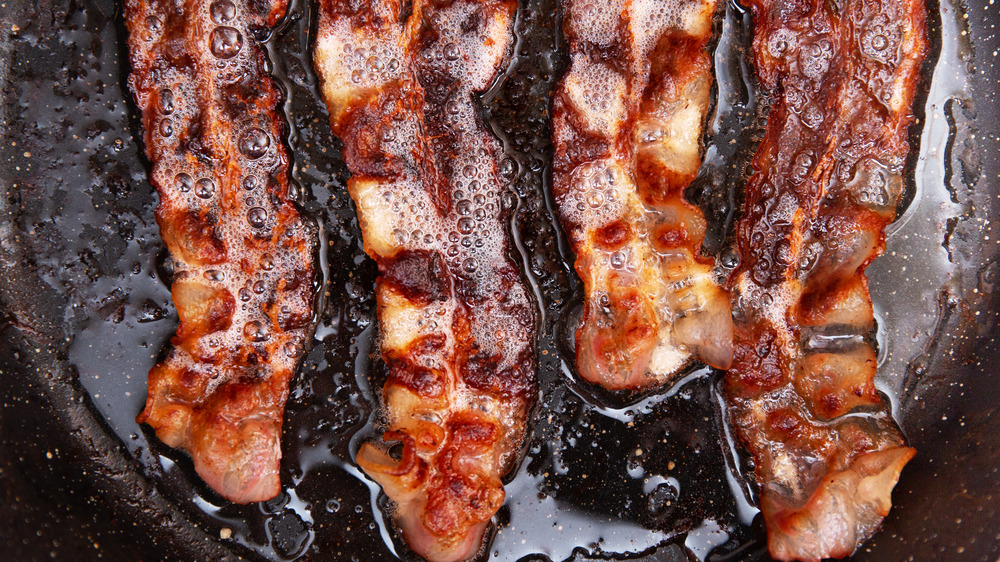What Is Sodium Nitrate And Is It Bad For You?
Before refrigeration, meats that were not immediately preserved with something like salt or smoke would spoil quickly. Even though we don't need to worry about keeping our bacon and lunchmeat cool anymore, we still take extra steps to keep them fresh for a long time. But are the additives used to preserve meat doing more harm to our health than good?
One of the preservatives that's used to extend the shelf life of food is sodium nitrate, a type of salt that is commonly found on the labels of processed meats (via Livestrong). While it can also be used in pesticides, paints, and medical settings, sodium nitrate in processed meats can increase your risk of diabetes, heart disease due to blood vessel damage, and even certain types of cancer (via Mayo Clinic). The International Agency for Research on Cancer even goes so far as to label processed meats as carcinogens (via IARC).
You may want to think twice about that hot dog
The IARC, which is part of the World Health Organization, classifies processed meat as a Group 1 carcinogen. Other well-known Group 1 carcinogens are tobacco smoke and asbestos. The group puts red meat itself into Group 2A, meaning it is probably carcinogenic to humans. Experts warn that eating 50 grams of processed meat a day, which is equivalent to one hot dog, can increase your risk of colon cancer by 18 percent.
Some people are turning to "nitrate-free" meats, which are being marketed as a healthier alternative to conventional processed meats. Many of these products contain celery juice, which is high in naturally occurring nitrites. There is no evidence that these natural nitrates are any healthier for you than those found in regular meats (via Harvard). Your best bet is to reduce meat consumption and specifically avoid processed meats. By doing this, you may decrease your chances for developing serious health conditions like heart disease and cancer.


